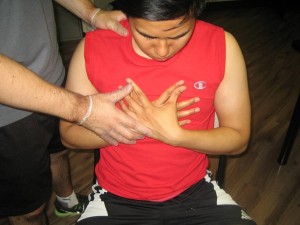Pleurisy is a condition affecting the lining of the lungs. Generally, this lining lubricates the surfaces amidst the chest wall and the lungs. If an individual has pleurisy, the lining ends up inflamed.
The condition can last for a few days up to 2 weeks. The distinctive sign is stabbing chest pain while breathing.
What are the causes?
Pleurisy is typically due to a serious cause of a viral infection such as bronchitis.

Other usual causes might include:
- Advanced case of bacterial pneumonia
- Other forms of viral infections that involves the lining of the lungs
- Blood clots
- Chest injuries such as lung trauma or rib fractures
- Lung tumors
- Sickle cell anemia
- Lupus
Management of pleurisy
The length of the condition is based on the root cause and if detected early. If caused by bronchitis or another viral infection, it settles on its own without treatment. Adequate rest and pain medications can alleviate the symptoms of pleurisy as the lining recuperates, usually up to 2 weeks.
Bacterial infections
If pleurisy is brought about by a bacterial infection, it is treated with antibiotics. Once treatment is started, the symptoms should settle within a week.
Blood clots
A blood clot that causes pleurisy is managed with a course of blood-thinning drugs. Once the clot dissolves, the condition must rapidly heal.
Chest wounds
If brought about by chest wounds or blunt trauma to the rib cage, pleurisy settles once the injury heals.
If an individual develops pleurisy, it is vital to allow the body to rest. The doctor might prescribe a codeine-based cough syrup to lessen the coughing and allow the individual to sleep as the condition settles.
Other measures to promote faster healing include:
- Deep breathing to clear out mucus that might be trapped in the lungs
- Over-the-counter pain medications to reduce the pain and inflammation
- Lying on the side of the body that is painful can compress the lining and provide comfort
